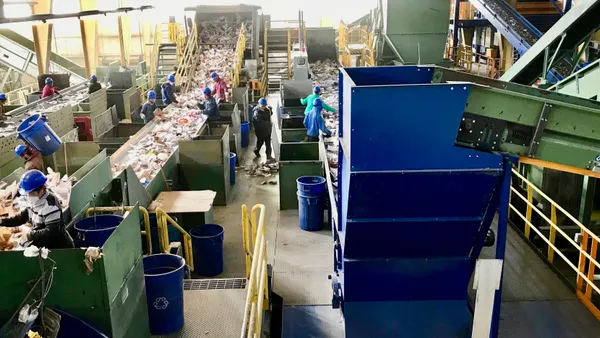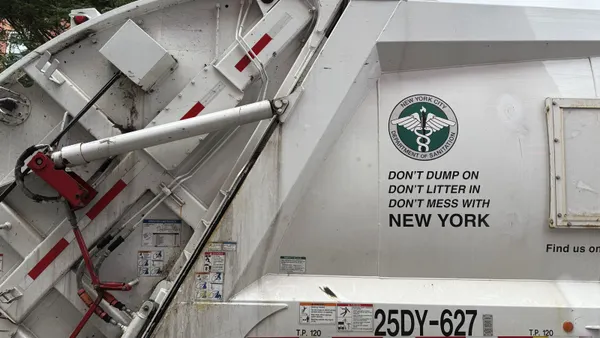Dive Brief:
- The Mutiara Trash Bank in Makassar, Indonesia is seen as a leading example of the expanding "trash banking" system. The country has 2,800 trash banks in 129 cities which serve 175,000 people, as reported by Bloomberg.
- Residents bring in recyclables that are weighed for value. In exchange they can withdraw or deposit money from bank accounts. Some banks allow residents to pay directly for rice, phone cards or electricity bills. The Makassar government commits to buying the waste at fixed prices and then sells it to waste merchants who ship it to Java.
- Makassar produces 800 tons of waste per day, much of which ends up in a large landfill. Waste pickers, who are often women and children, work to retrieve valuable materials from the growing pile. According to Indonesia’s Ministry of Environment and Forestry, 70% of the country's waste goes to landfills.
Dive Insight:
By U.S. standards, most people in the trash banking program don't make significant amounts of money. Many bank customers are women who work part-time to help support their families. One woman named Sitinah, who runs a small convenience store, used money she made at the trash bank to buy a wok so she could start a home-catering business.
"Before I never seemed to have any money," she said. "Now I can dip into these savings when I need to."
Countries such as Ghana, South Africa, India, Colombia and Brazil also have similar systems. Indonesia's network is the largest.
A recent report by the organization Women in Informal Employment: Globalizing and Organizing found government involvement makes a big difference in the lives of waste pickers. That could mean trash banks, grants for supportive programs or payment agreements with municipalities. In many cases people are already doing this work — which has environmental and social benefits.










